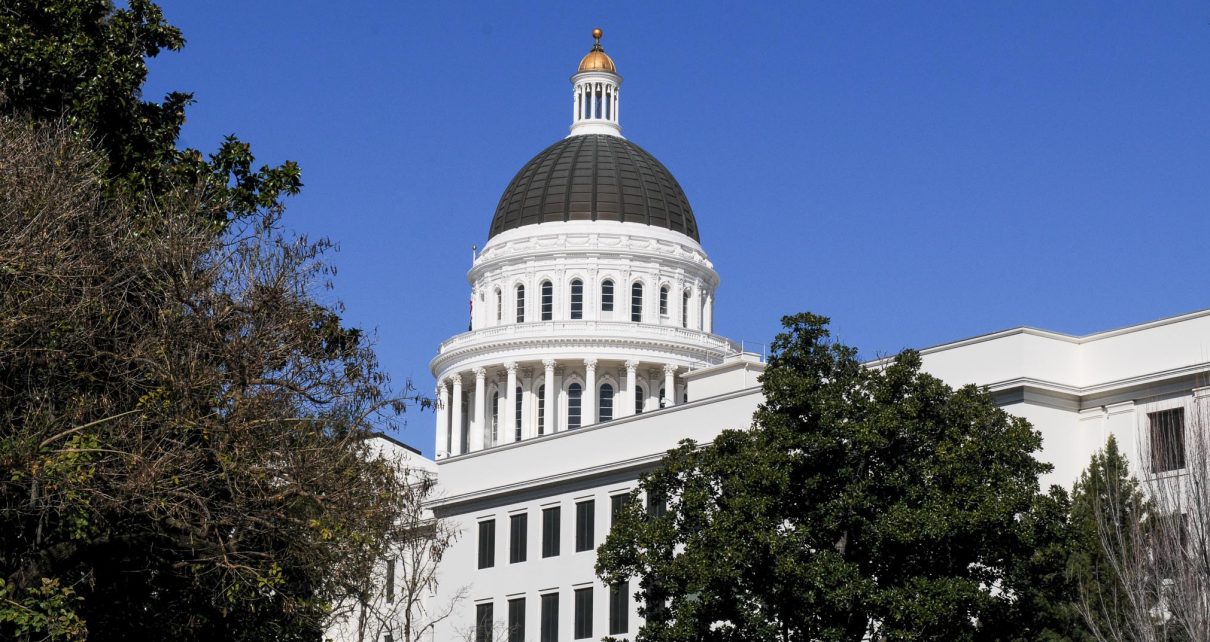
California State Capitol. (Photo: Kevin Sanders for California Globe)
AB 2183 – An Interesting Bill Signing Case Study
When a Governor has substantial concerns with a bill, he usually vetoes the bill
By Chris Micheli, September 29, 2022 1:09 pm
While the media has covered all of the political and legislative dynamics of Governor Gavin Newsom signing Assembly Bill 2183, concerning agricultural workers unionizing efforts, what stands out for some Capitol observers was the press statement issued by the Governor’s Press Office.
In announcing the Governor’s signature of AB 2183, including photos from the signing ceremony, the Governor announced an agreement with the bill’s proponents that substantial changes would be made to this new law in the 2023 Legislative Session to address the Governor’s concerns. Why is this unique? There are several reasons:
First, when a Governor has substantial concerns with a bill, as evidenced by the extensive amendments that will be made to this bill next year, the Governor usually vetoes the bill (rather than signs it, as with AB 2183) and explains the requested amendments and suggests that the author and sponsor work with the Governor’s Administration next year to get an acceptable bill that the Governor will sign.
Second, the press release included a link to the amendments that were agreed upon to get the Governor’s support for the bill. And the link was not included once, but three different times in the press release. In most circumstances, requested amendments are described (usually in the veto message). In this case, they were actually publicly provided. And having the amendments shared three times in unusual.
Third, based upon the amendments, those amendments were prepared in advance and finalized by the Office of Legislative Counsel the day before the Governor signed the bill. The proposed new bill includes 21 pages of amendments. The following is the Title of the bill:
An act to amend Sections 1149.3, 1160.3, 1164, 1164.3, and 1164.5 of, to amend, repeal, and add Sections 1142, 1156, 1156.5, and 1157 of, to add Section 1160.11 to, to repeal Sections 1156.35 and 1156.36 of, and to repeal and add Section 1156.37 of, the Labor Code, relating to employment.
Fourth, in addition to the links to the agreed upon bill language, the press release contained a link to a letter that was signed by the heads of the United Farm Workers and the California Labor Federation, the main sponsors of AB 2183. This has not happened in recent memory.
That letter reads as follows:
September 28, 2022
Assembly Bill 2183 (Mark Stone) – Request for Signature
Dear Governor Newsom,
We write to request your signature on AB 2183, the Agricultural Labor Relations Voting Choice Act, authored by Assembly Member Mark Stone. Conversations with your office have led to an agreement with you on additional legislative language, as written in the attached RN 22 21856 from 2:15 pm on September 27, 2022. The language in RN 22 21856 will allow for easier implementation than some provisions of AB 2183.
We look forward to your signature on AB 2183 (Stone) and the subsequent passage by the Legislature of the language from RN 22 21856. With the signing of AB 2183 (Stone), this letter articulates our commitment to help lead and support passage of the attached legislation to replace what will be enacted through the signing of AB 2183 (Stone). Collectively we will move the legislation, without amendment, to your desk as quickly as possible in 2022 or in 2023.
Sincerely, Teresa Romero President United Farm Workers and Lorena Gonzalez Fletcher Executive Secretary-Treasurer California Labor Federation, AFL-CIO
Fifth, this letter commits these two organizations to actively support the exact language contained in the thrice-provided bill language that they agreed to do with the Governor.
Sixth, the amendments substantially re-write AB 2183. For example, the deal to amend the law next year caps the number of card-check unionizations on farms at 75 from 2024 through 2027, as the bill sunsets on January 1, 2028.
Seventh, this bill was vetoed just last year, and most indications were that the same outcome would occur with this year’s version as well.
What makes this bill an interesting case study, and much more detail could be added to the above points, is that the bill’s signature occurred with two very public statements being made: a letter from the bill’s sponsors that they would get the agreed upon language to the Governor’s Desk next year, and the actual bill amendments were made available to the public well in advance of the new Session beginning.
- Sabotage Prevention Act - December 14, 2024
- Why Would the Legislature Request? - December 13, 2024
- A Different Type of Legislative Statement? - December 12, 2024




